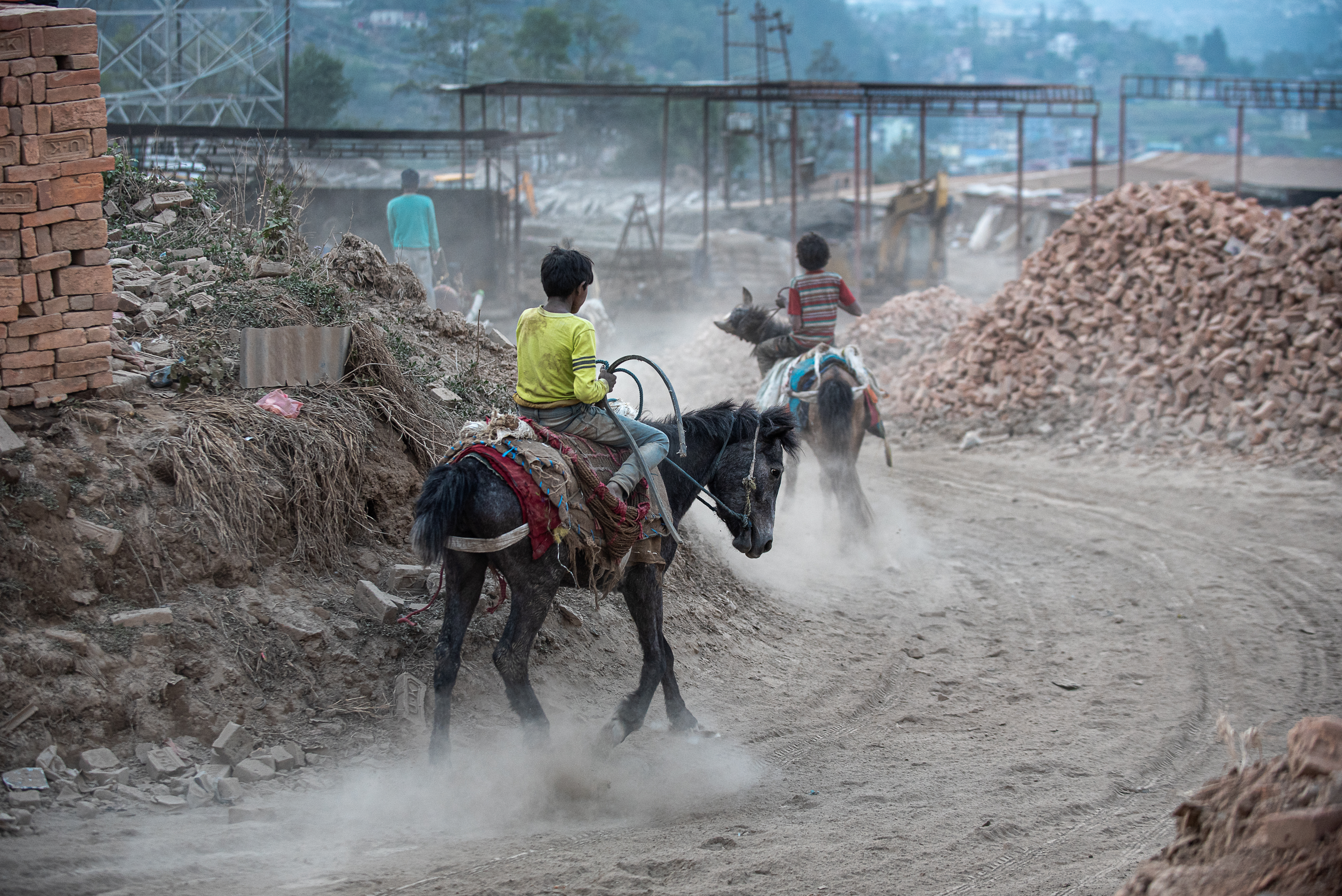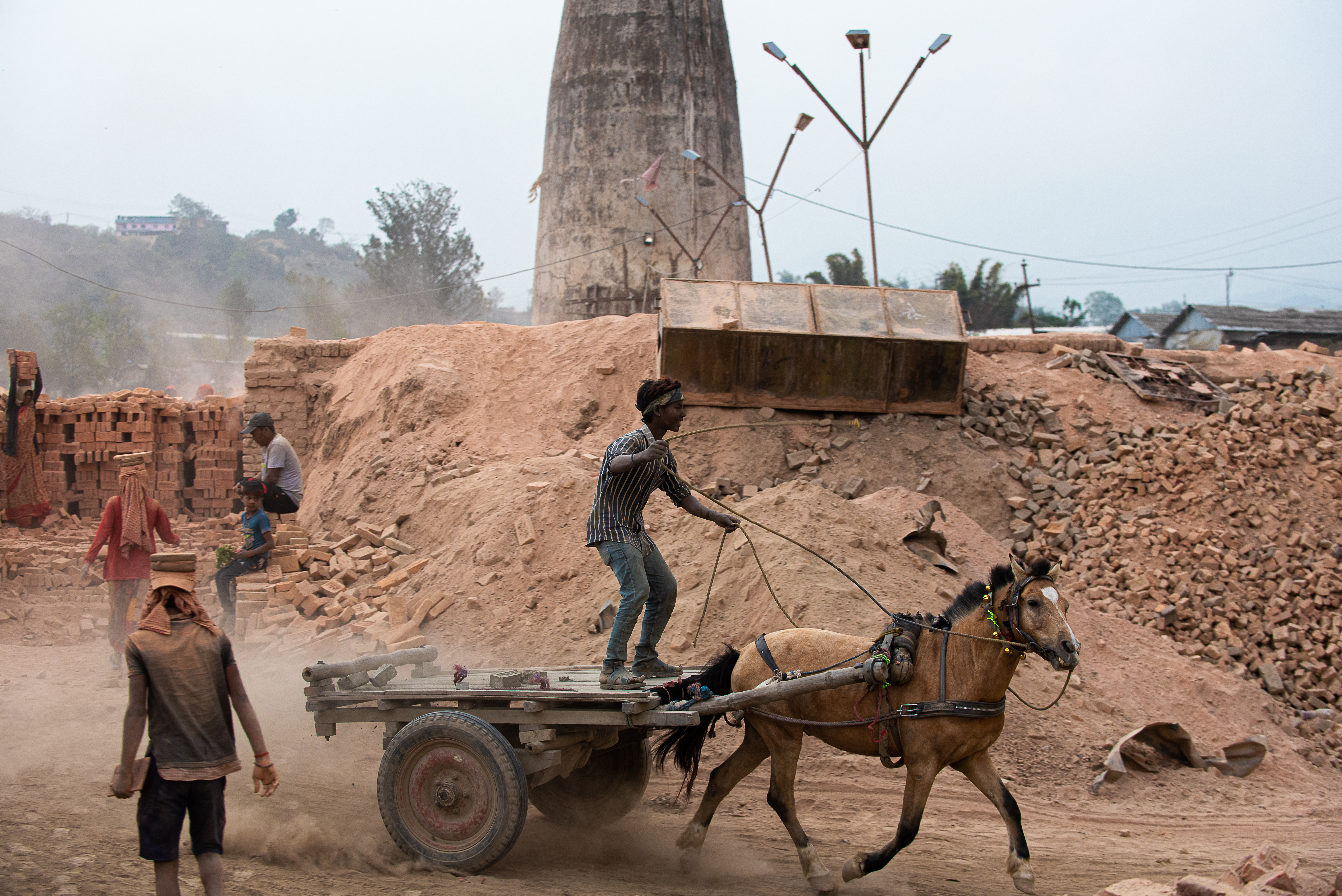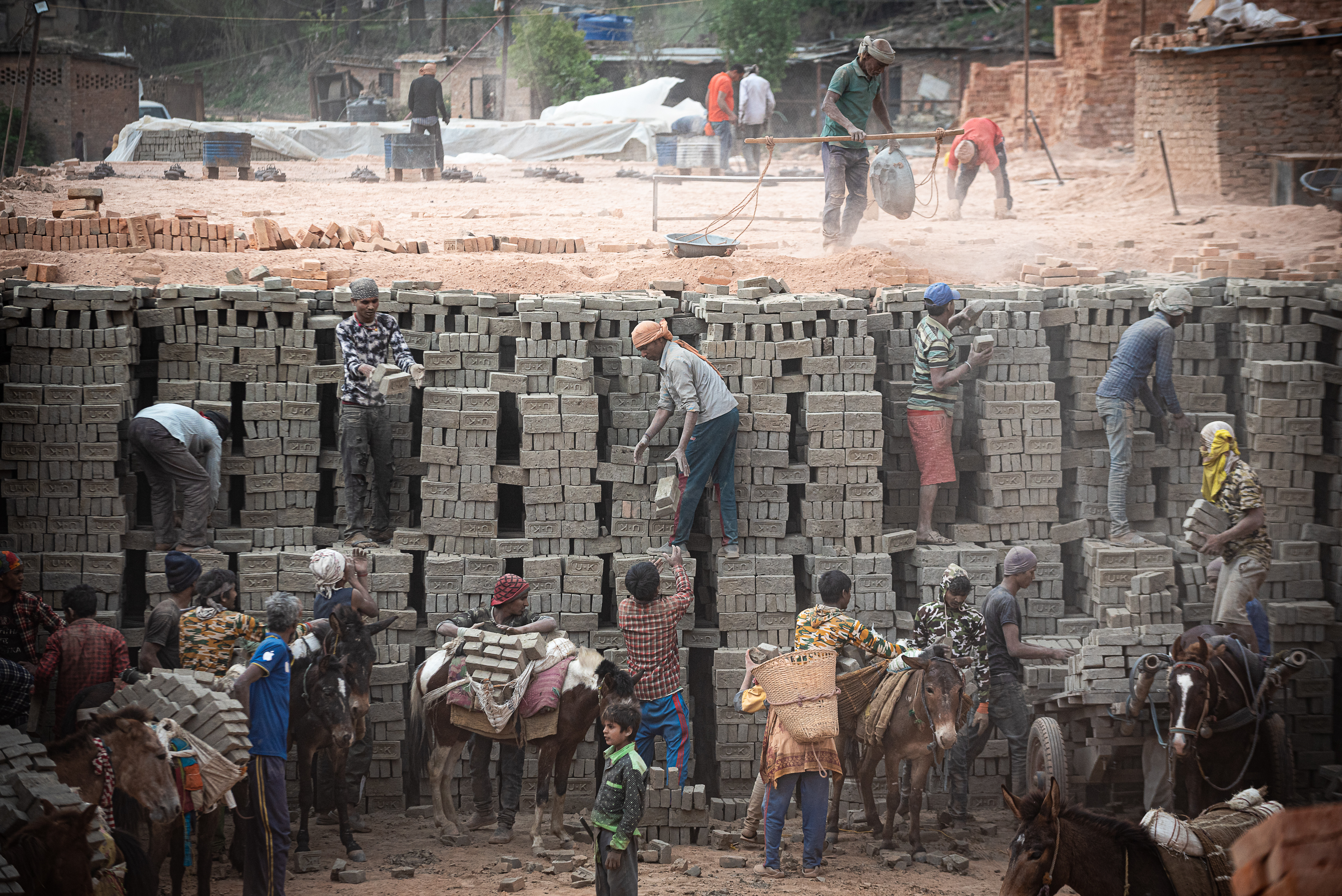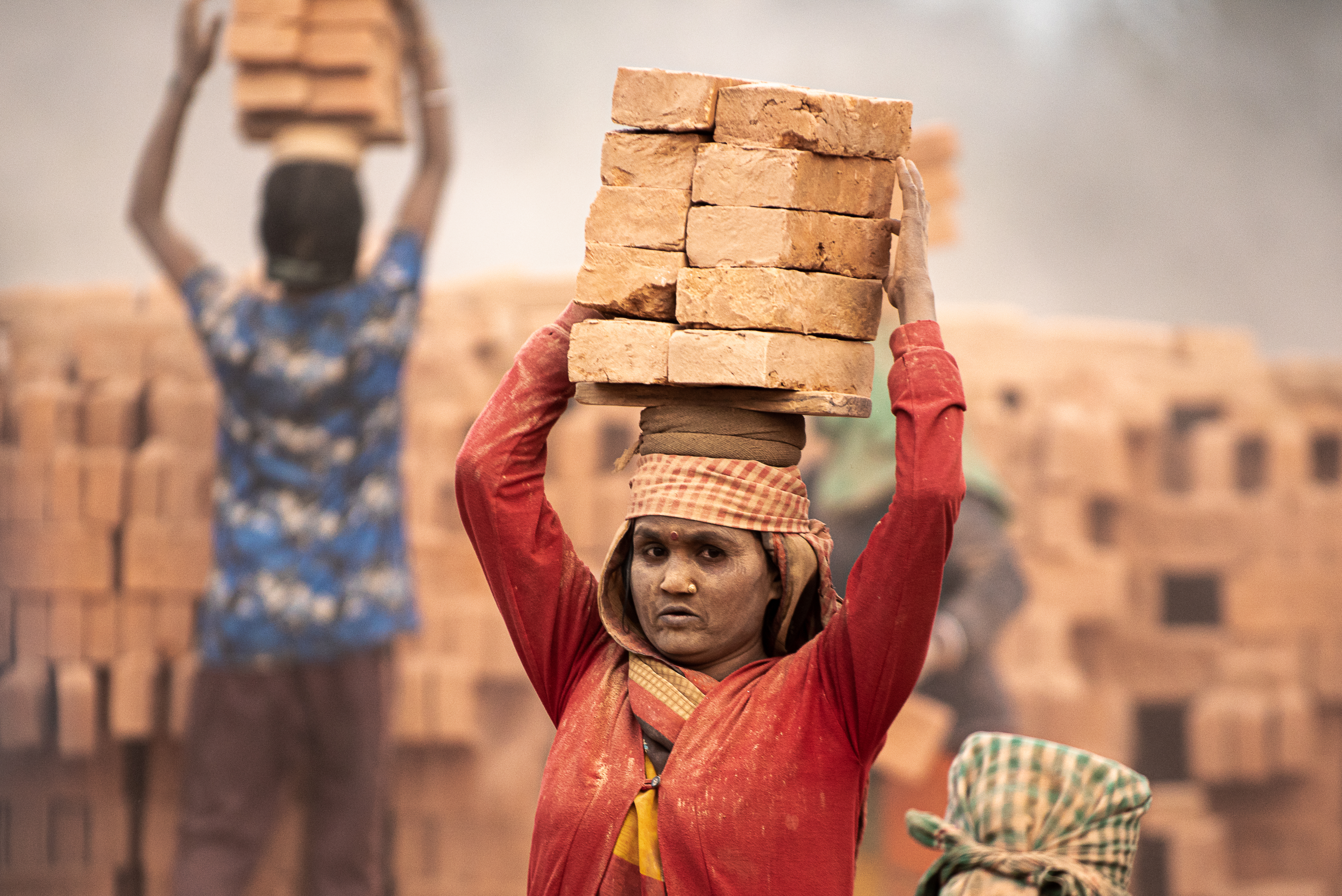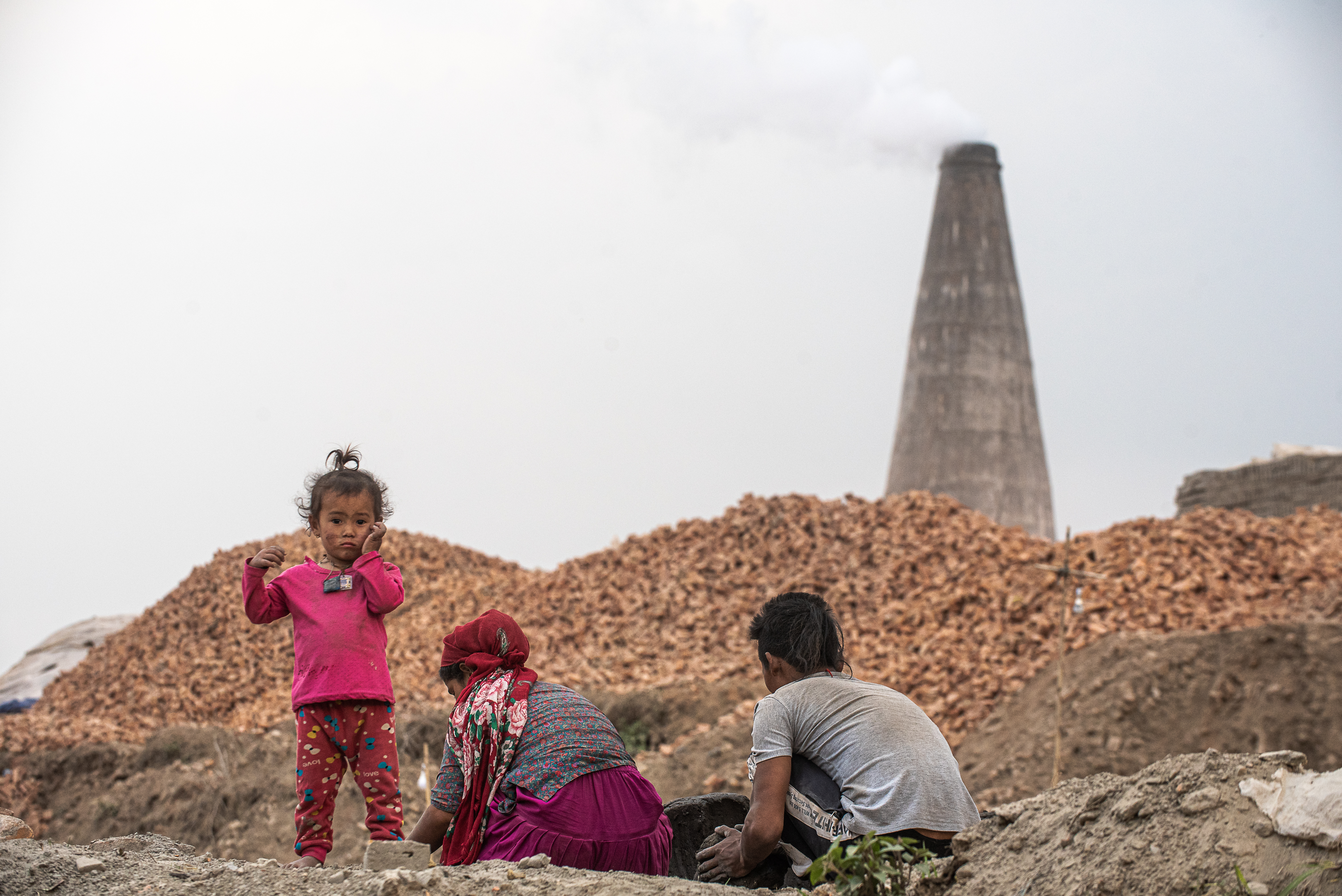There are around 300 souls working at this brick factory in Bungamati, Lalitpur. The majority of them are women who hail from outside Kathmandu—and there is a sizable number of Indian workers. Many of these laborers come to work with the entire family in tow, and it is common to see children helping their parents. Most of these children, I learned, did not attend school.
As more and more Nepali men are leaving the country in search of jobs, the women who remain behind have been forced to work as wage laborers, as in this brick factory. The work is demanding, the hours are long, and the pay is scant. During 8-9 hours of daily work, the most demanding part is hauling big stacks of bricks on one’s back for storage or for loading onto trucks for selling.
A worker earns between Rs 600 and Rs 800, the final sum depending on the number of trips they make carrying the bricks. Several studies on these factories have found that the workers there are highly vulnerable to respiratory illnesses like pneumonia and asthma. Workers carrying cooked bricks out of chimneys and those laboring in small workplaces are particularly vulnerable. With no health insurance, falling ill can often be a death sentence.
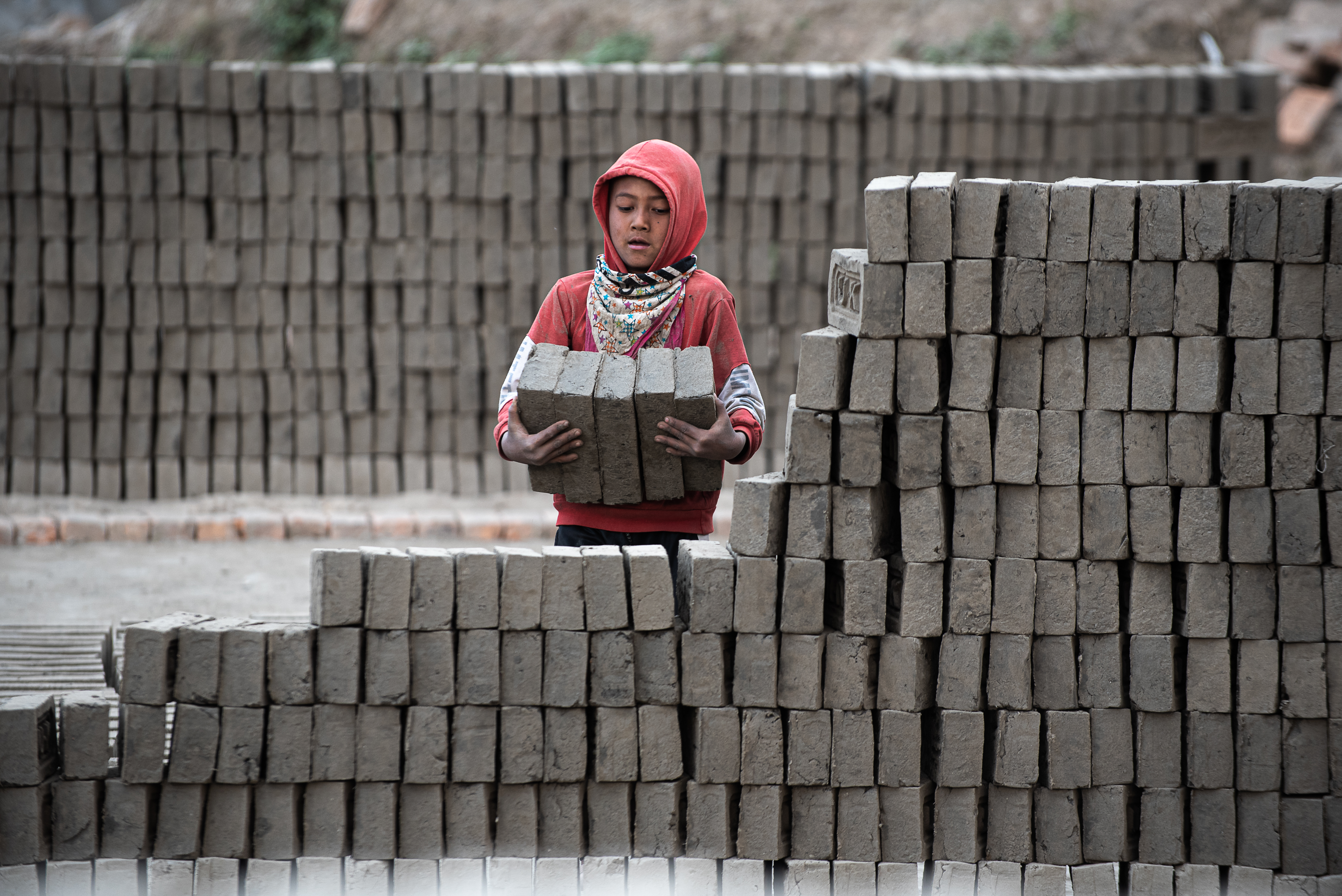
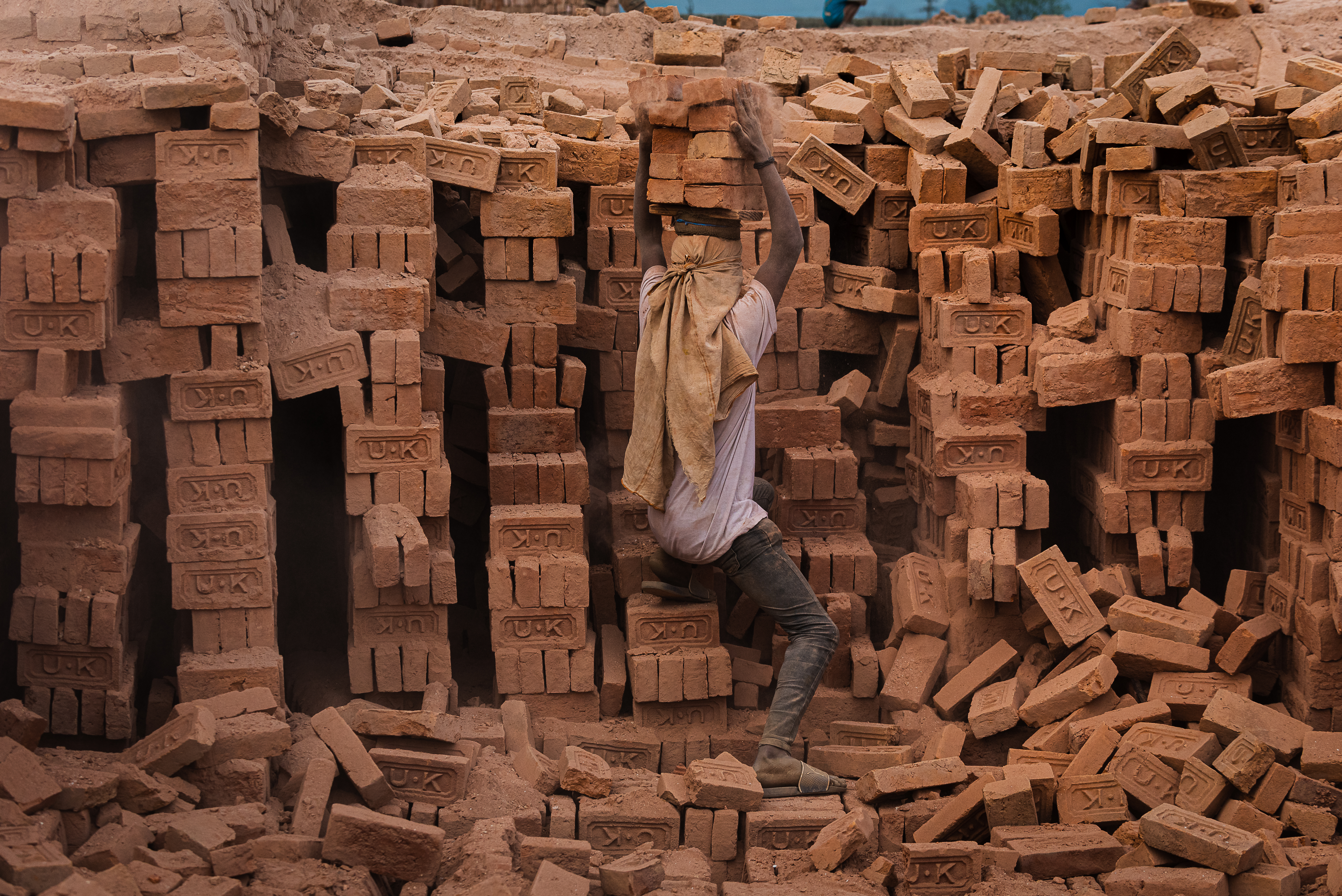
_20220323224349.jpg)
_20220323224348.jpg)
